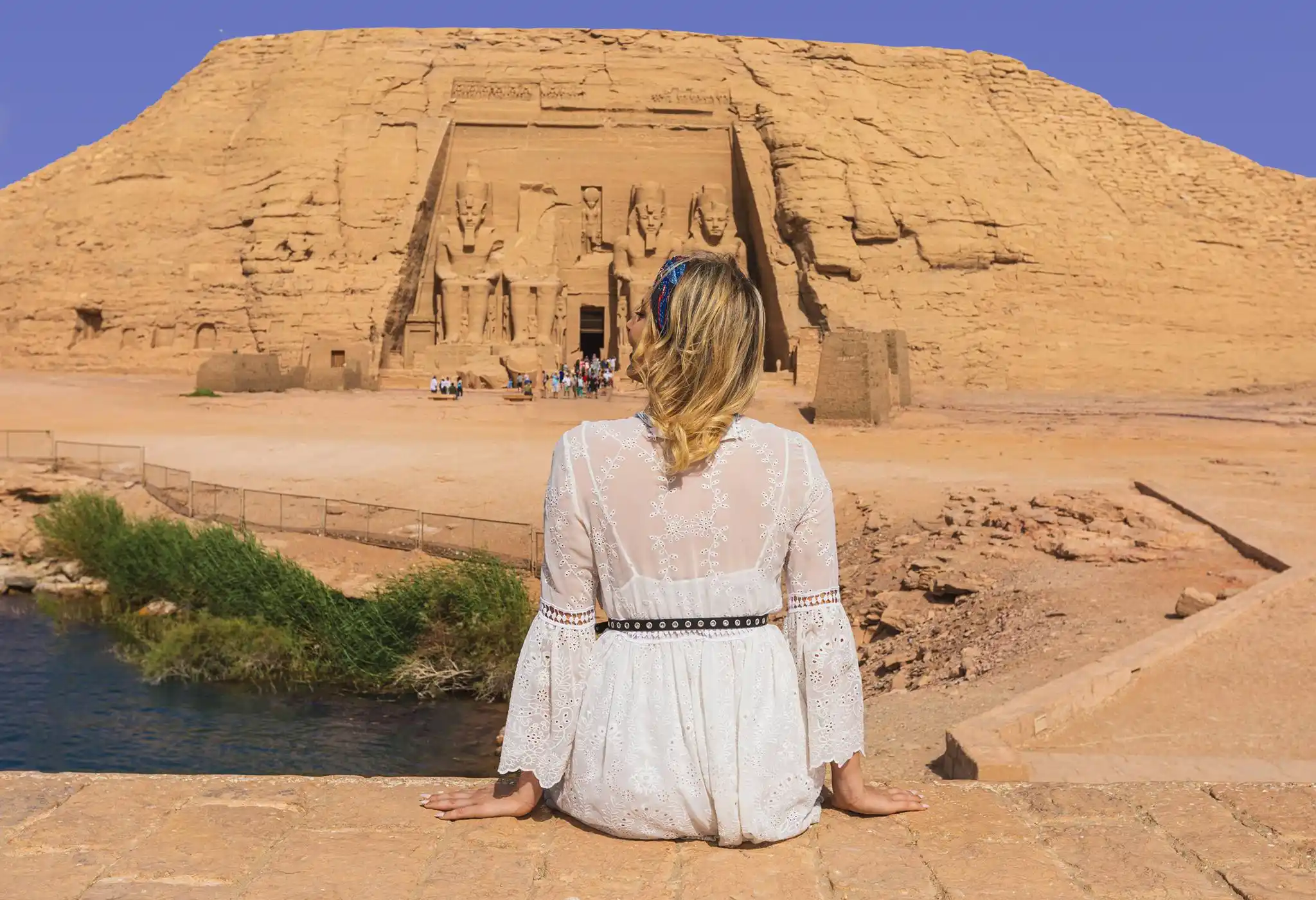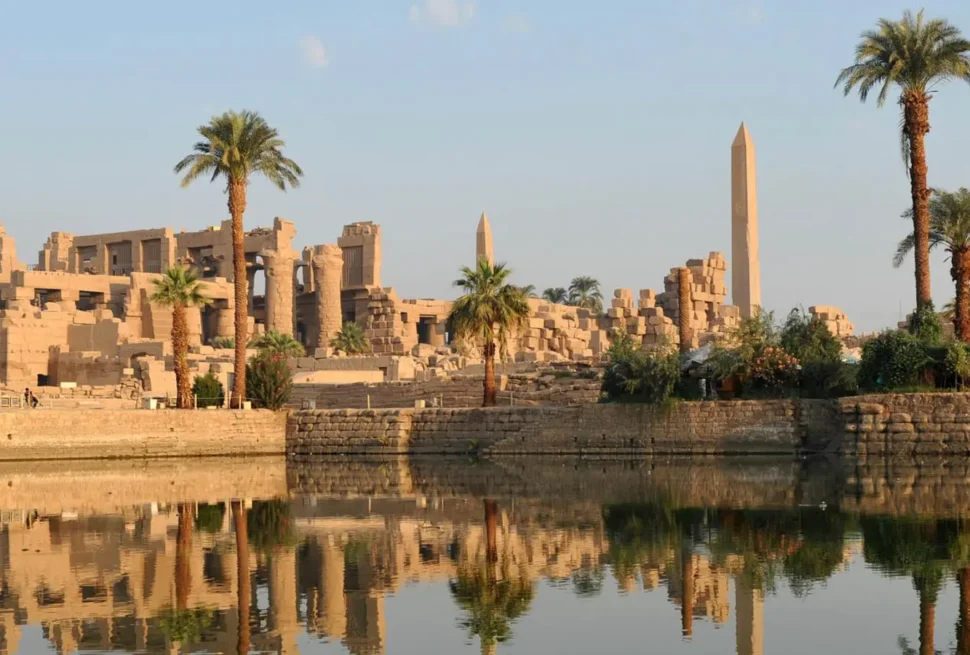The calm little jewel Aswan offers a rich tapestry of history, culture, and natural beauty along the Nile River in southern Egypt. Usually overshadowed by Cairo and Luxor, Aswan attractions should be considered by any traveler eager to develop a deeper understanding of ancient Egyptian heritage and serene landscapes. From grand temples to buzzing markets, the city of Aswan offers the best of all worlds to interest anyone who would want to stop by.
Introduction to Aswan
Known also as the “Gateway to Nubia,” Aswan is the southern tip of Egyptian cities. It was once a great trade and military post linking Egypt with sub-Saharan Africa. Today, Aswan showcases Egypt’s great Nubian heritage with sights of ancient Egyptian monuments, tranquil nature views, and the Nubian way of life.
Top Aswan Attractions
1. Abu Simbel Temple
Located nearly 230 kilometers southwest of Aswan, the Abu Simbel temple are probably the most emblematic monuments in Egypt. Commissioned by Pharaoh Ramesses II in the 13th century BC, the massive rock-adorned temples were relocated in the 1960s to save them from drowning by the creation of the Aswan High Dam. The Great Temple, being the temple of Ramesses II, and the Small Temple, dedicated to his queen Nefertari, belong to the greatest achievements in ancient Egyptian architecture and engineering.
2. Philae Temple
Once sited on Philae Island, the Philae Temple complex was built for the worship of the goddess Isis. With the rise of the Nile waters, the temple had to be relocated to Agilkia Island in the 1970s. Philae presents one of the splendid temples with intricate hieroglyphics on red granite and striking pylons, making it an important site for anyone interested in the problems of ancient Egyptian religion and art.
3. Nubian Museum
Opened in 1997, the Nubian Museum in Aswan is an attempt to preserve and conserve the history and culture of the Nubian people. Over 3,000 items are contained in the museum, including statues, ceramics, and manuscripts, all representing different periods from prehistoric times to the Islamic period. The design of the building and museum exhibitions enable one to qualify for a full understanding of Nubian heritage.
4. Aswan High Dam
Built in 1970, the Aswan High Dam is the dating term of the wonders of modern engineering. It is built across the Nile River and is exploited chiefly in hydroelectric power, along with having altered agriculture and ecology of the region to a large extent. Visitors can have a tour around the dam, where they would be explained the construction, working, and how it has impacted the development of Egypt.
5. The Unfinished Obelisk
An insight into the ancient Egyptian stone-cutting methods is provided by the Unfinished Obelisk lying in the northern quarries of Aswan. Intended to be the largest ever erected, this gigantic obelisk was abandoned due to cracks in the granite. It offers a unique insight into the problems faced by ancient masons.
Cruising on the Nile River
One of the most enchanting ways to see Aswan attractions would certainly be to have a cruise on the Nile. This tour goes on from Aswan through to Luxor, pausing at the temples of Kom Ombo and Edfu and other historical sites en route. This experience softens and enriches an appreciation of the region’s wealth of ancient monuments and landscapes.
Aswan Old Souk
An exciting and fun shopping experience awaits you in Aswan Old Souk. This market is capable of offering any genuine souvenirs: spices, perfumes, handmade jewelry, and ethnic patterns. Add to this peri hasher merchants loudly advertising their wares, and a dozen enticing aromas from exotic spices mix together, making for an unforgettable shopping experience.
Natural Wonders Amid Awe-Inspiring Views
Nubian Villages
Visiting the Nubian villages along the Nile provides for a truly intimate experience. The homes in these villages are brightly colored, the people are friendly, and the pace of life is still traditional. Guests can mingle with the locals and learn about the traditions of Nubia whilst savoring some genuine Nubian cuisine.
-The Times
Elephantine Island
Sitting on the Nile not far from Aswan is the island of Elephantine, home to some ancient ruins and pleasant gardens. Archaeological finds on the island include remains of temples to the god Khnum. At present, it serves as a tranquil sanctuary with magnificent views and some insights into ancient Egyptian civil life.
Where to Stay in Aswan
Accommodation is plentiful in Aswan, catering to all expectations and budgets. From plush resorts with views of the Nile to quaint guesthouses in the heart of the city, it’s easy to find somewhere comfortable to base yourself during explorations. Many hotels also run their own tours and excursions to nearby attractions.
Planning Your Aswan Attractions Trips
In planning your visit to Aswan, you may want to keep the following in mind:
Best Time to Visit: Anything from October to April is preferable as the cooler months for exploring what Aswan has to offer.
Local Cuisine: Enjoying Nubian specialties like “fatta” (meat and rice dish) and “kisra” (a type of bread) is an absolute must.
Cultural Etiquette: Dressing modestly and respecting local customs is advisable, especially when visiting religious sites.
Guided Tours: Hiring a local guide helps enrich your experience with historical insight and insider knowledge.
Conclusion
Converting Aswan into a city where ancient history marries natural beauty. From cruising the Nile to wandering ancient temples to absorbing the Nubian lifestyle, Aswan offers quite an uncommon and enriching experience. Book your trip to Aswan attractions now with Step To Egypt.


